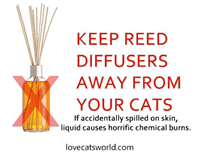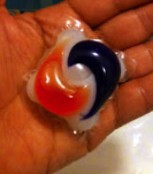Springtime! A great reminder for your pet's annual exam!
The worms you find in your garden mulch are not the same worms that cause heartworm disease in pets. Mosquitoes carry heartworms. And all it takes is one mosquito to bite your pet to become infected.
Here’s the good news about heartworm disease. It’s an illness that can be easy and aÂffordable to prevent. The bad news is, if you don’t prevent it the right way, your pet is at high risk of getting sick. Heartworm disease is dangerous to your pet and some signs of the illness are tough to spot. Your pet may be acting fine, but they may have so many heartworms inside their body that it can become life threatening.
You may be thinking, “my pet stays indoors, so there’s no need for heartworm prevention.” But, heartworms are carried by mosquitoes, which get into everyone’s homes! One mosquito bite is all that’s needed to spread the disease to your furry friend.
Schedule your pet’s yearly checkup with us. We’ll do a thorough exam, including a simple heartworm test, to make sure your pet is at his/her optimum health. And we’ll talk about the best way to prevent heartworm disease, so your pet stays healthy, happy and safe!
Make an appointment for your pet’s annual exam today!
THE DANGERS OF REED DIFFUSERS TO OUR PETS
 Do you or anyone you know use reed diffuser’s in their home and have small children or pets? As a veterinary technician I knew that various chemicals can be caustic to humans and animals. I came across this article posted by LoveCats World and realized that people need to see the dangers in this product.
Do you or anyone you know use reed diffuser’s in their home and have small children or pets? As a veterinary technician I knew that various chemicals can be caustic to humans and animals. I came across this article posted by LoveCats World and realized that people need to see the dangers in this product.
An office cat named Dewey had knocked over a cinnamon reed diffuser and the staff had saw it right away and cleaned him up immediately. They thought that the oil had just stained his fur and didn’t see what was actually going on beneath the surface. The oil had caused chemical burns to Dewey’s belly and the inside of his back legs. The severity of the burns did not show up until about a week later.

This is Dewey while recovering. He had spent 5 days at a veterinary clinic and had to be put under anesthesia to ease his pain whilethe wounds were debrided and cleaned. Dewey will eventually recover completely but, what if he would have ingested the chemicals or if they would have spilled on his face. In that case Dewey might not have been so lucky.
The reed diffusers are beautiful accents to home décor but make sure they are not accessible to pets or children. Their safety comes first. Please share to your friends and family.
Credit given to lovecatsworld.com and snopes.com.
​Detergent pods — Danger to our pets and children
Most soaps, both laundry and dishwasher, contain chemicals, that when ingested in small amounts will cause pets to respond to the unpleasant taste by drooling, vomiting and/or having diarrhea. But there is a new danger now with the highly concentrated,
 prepackaged laundry or dishwasher detergent pods. Some of the pods look like candy and come in brightly colored packages. There have been increasing reports from Pet Poison Helplines and Children’s Hospitals of poison cases related to the pod products. The problem arises when the pet bites into the pod, the product is both highly concentrated and under pressure from the bite, so the detergents are forcefully expelled and then may be inhaled into the lungs or swallowed.
prepackaged laundry or dishwasher detergent pods. Some of the pods look like candy and come in brightly colored packages. There have been increasing reports from Pet Poison Helplines and Children’s Hospitals of poison cases related to the pod products. The problem arises when the pet bites into the pod, the product is both highly concentrated and under pressure from the bite, so the detergents are forcefully expelled and then may be inhaled into the lungs or swallowed.Over the past 2 years, the cases reported to the Pet Poison Helpline, 72% of the pets developed clinical signs (illness related to the pods). The most common signs were vomiting, cough, lethargy (acting tired) and problems breathing.
When the exposure occurs it is very important for the pet owner to dilute the exposed site as much as possible. The owner needs to rinse the mouth, skin or eyes with water until the slick “soapy” feeling is gone. If there is vomiting or trouble breathing, the owner needs to contact their veterinarian right away.
There is no antidote for the soap, so the treatment is mainly supportive — to nurse your pet through this incident.
(dvm360, January 2015)
